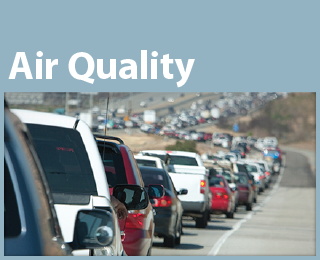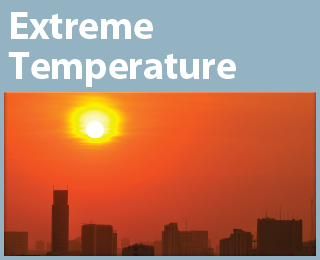Climate Action Benefits: Health
Weather and climate play a significant role in our health and well-being. As a society, we have structured our day-to-day behaviors and activities around historical and current climate conditions. Increasing GHGs in the atmosphere are changing the climate faster than any time in recent history.1 As a result, the conditions we are accustomed to and the environment in which we live will change in ways that affect human health. In addition to creating new problems, changes in the climate can exacerbate existing human health stressors, such as air pollution and disease. Many of the adverse effects brought on by climate change may be compounded by how our society is changing, including population growth, an aging population, and migration patterns that are concentrating development in urban and coastal areas.
How are people vulnerable to climate change?
Climate change is projected to harm human health in a variety of ways through increases in extreme temperature, increases in extreme weather events, decreases in air quality, and other factors.2 Extreme heat events can cause illnesses and death due to heat stroke, cardiovascular disease, respiratory disease, and other conditions. Increased ground-level ozone is associated with a variety of health problems, including reduced lung function, increased frequency of asthma attacks, and even premature mortality.3 Higher temperatures and changes in the timing, intensity, and duration of precipitation affect water quality, with impacts on the surface water we use. There are a variety of other impacts driven by climate change that are expected to pose significant health hazards, including increases in wildfire activity (see the Wildfire section of this report).4
What does CIRA cover?
CIRA analyzes the potential impacts of climate change on human health by focusing on air quality, extreme temperature mortality, labor, and water quality. Analyses of many other important health effects are not included in CIRA; these include, for example, impacts from increased extreme weather events (e.g., injury or death from changes in tropical storms), air pollution from wildfires, and vector-borne disease (e.g., Lyme disease and West Nile virus).




